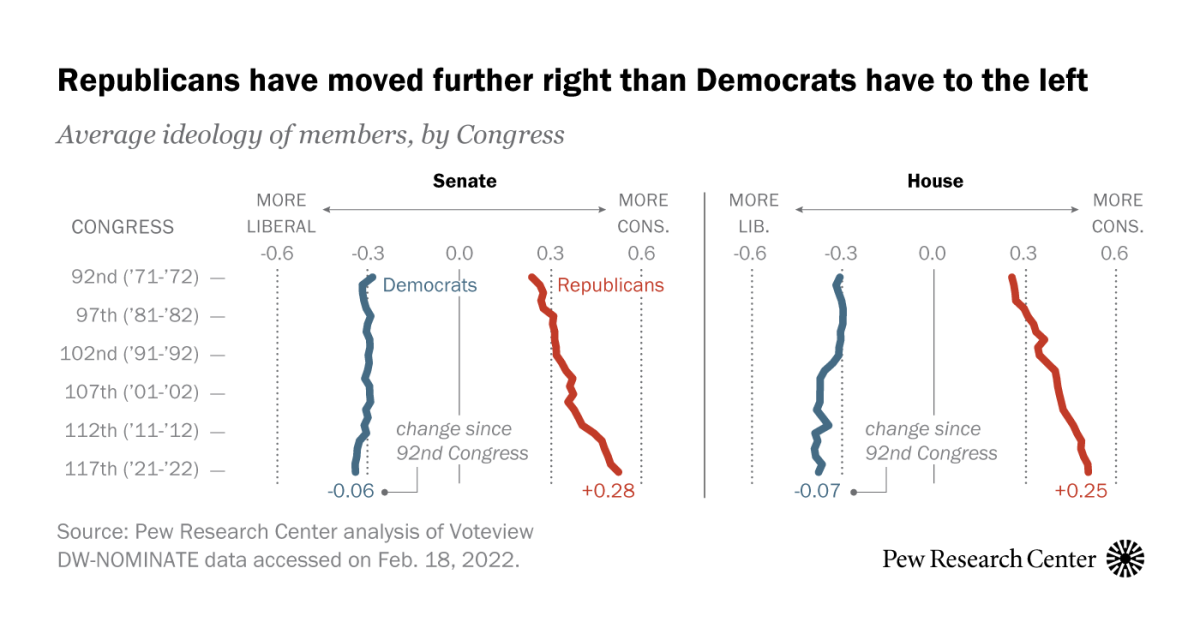That is interesting data, but I think it's important to qualify what it is actually measuring. The data isn't about the scale of the ideology left or right, it's about the consistency in the voting. It's not "liberals got more liberal and conservatives got a lot more conservative", it's "Democrats started voting more consistently liberal" and "Republicans started voting a lot more consistently conservative".Generally speaking, liberals got slightly more liberal and conservatives got a *lot* more conservative.

The polarization in today’s Congress has roots that go back decades
On average, Democrats and Republicans are farther apart ideologically today than at any time in the past 50 years.www.pewresearch.org
Which makes sense: the '08 election saw conservatives go absolutely *berserk*. Birtherism, the Tea Party, etc. John McCain when from firebrand conservative to moderate without changing any actual opinion.
The New York Times had an interesting piece in 2016 about the polarization of US politics:

Opinion | What Happened to America’s Political Center of Gravity? (Published 2019)
The Republican Party is farther right than U.K.I.P. and France’s National Rally, according to an analysis of their platforms.

The stated ideology of the Republican Party has pretty much stayed still. The Manifesto Project has analyses back to 1948, the Republican Party fluctuated between 0 and +20 on their scaleup until 1980, and has been firmly planted in the 20-30 zone since. The Democratic Party was consistently -20 on their scale until the 90s and 2000s where wars in the Middle East pushed them just right of the center line, before crashing back left hard from 2008 onward. (Side note, the New York Times being themselves chose a misleading center line. They plotted the median party, which pulls the center left because the world has many, many small left wing parties and not many small right wing parties. The zero axis from the source data, using a mean by scaling parties by how many people they represent, would go pretty much straight through the Democrats in 2004.)
It's not that Republicans went ultra-conservative, the party basically stood still ideologically. It's that they consistently stopped voting for the Democrats' bills.



